Odoo’s Website app in version 17 introduces a sleek redesign, optimised features, and an enhanced user experience. Intrigued by these updates, our Marketing team, currently using WordPress for our website, decided to make the switch, and conducted a thorough comparison between WordPress and Odoo 17’s Website module. In this article, we’ll share our insights to help you determine the best website tool for your needs, drawing on our own evaluation process. In this article, we’ll share our honest thoughts to help you understand which website tool may work best for you — just like we did for ourselves!
Disclaimer: This comparison is based on our needs & might differ for you!
We compared features in Odoo 17 and WordPress based on what we needed most:
- A B2B marketing site that our non-tech team can self-manage
- A web builder that’s easy to maintain daily
- Multilingual features for our dual-language site
- A simple way to showcase & maintain our blogs
- Multilingual features for our dual-language site
- Integration with our Odoo CRM
These were our top priorities – but your needs might be different! For example, if your team is more tech-savvy and wants to customise freely or if your business needs an eCommerce website, your focal points will have to be very different to ours.
What’s new in Odoo 17 Website?
In version 17, Odoo Website saw a series of improvements and valuable new features which made us opt for a switch. These are some of the most appealing new features, mentioned by Odoo in their latest release notes:
- Existing website scraping: this facilitates your switch from a previous website system to an Odoo-based environment
- AI-powered website configuration: ChatGPT is now available to generate relevant text based on your website and its existing content
- Navbar & Mega Menu configurations: a simple way to edit multi-layered menus, headers, and footers
- WebP Images: to prevent long loading times and improve website speed
- Multi-website & translation functionalities: caters to different audiences, regions, or languages with specific content and design
- Responsive design: adapts between desktop and mobile, and makes editing on both displays cohesive and intuitive
- Themes & building blocks: makes design simple with an interface that provides set or customizable themes and colour palettes, provides a solid library of building blocks with varied animations and dynamic content
Odoo 17 Website vs WordPress: feature by feature
When comparing both platforms, it’s important to note a key difference: Odoo 17 is mainly a website builder, while WordPress is a complete Content Management System (CMS):
Odoo 17 Website: provides tools to create and manage the design of a website easily without needing much technical knowledge
WordPress: offers extensive features for managing content such as text, images, and videos on a larger scale, but requires some technical expertise for advanced customisation & functional management
From here, we’ll compare them in practical terms, focusing more on how they work for everyday users rather than getting into technical details.
1. Integration with our Odoo system
The main reason we want to make the move to Odoo 17’s Website module is its seamless integration with our existing Odoo infrastructure. This simplifies our processes and opens up many automation opportunities across our marketing and sales.
Odoo 17: Fully integrable with Odoo Apps like CRM, Sales & E-Mail Marketing
Odoo 17 integrated ChatGPT across various modules, such as the Knowledge app, Marketing apps, and communication tools like email templates, etc. This integration of generative AI with Odoo 17 can help users to write articles and generate text to make content creation easier.
- For Odoo users, creating a website that connects to all your business operations is a dream. Take us, for example — our website’s goal is B2B marketing. We can connect our Odoo Website with marketing apps like Email Marketing and Marketing Automation. Any lead from a contact form goes directly to our CRM, no tricky external connections needed
WordPress: Want connectivity? Just add it on
- WordPress is incredibly flexible and can connect to practically any software with the right plugins and settings. There are countless articles explaining how to integrate CRM or HR softwares to your WordPress site
- WordPress is heavily reliant on plugins, as these features aren’t built-in. This leads to a dependency on addons, which, in our experience, never truly ends
2. User friendliness & design capabilities
At heart, Odoo 17 gives you a website builder with drag-and-drop blocks to design your website straight off the bat. For us to achieve this level of design intuitiveness with WordPress, we use the Divi theme plugin. These are our pros & cons on both:
Odoo 17: Simple by design
- Simple and easy to use setup with drag-and-drop features that are system native, eliminating the need for additional plugins. Edit everything in one place, from pages, blogs, headers, footers and mega menus
- Limited in customization options; the native blocks and features might not cover all specific needs or detailed customizations
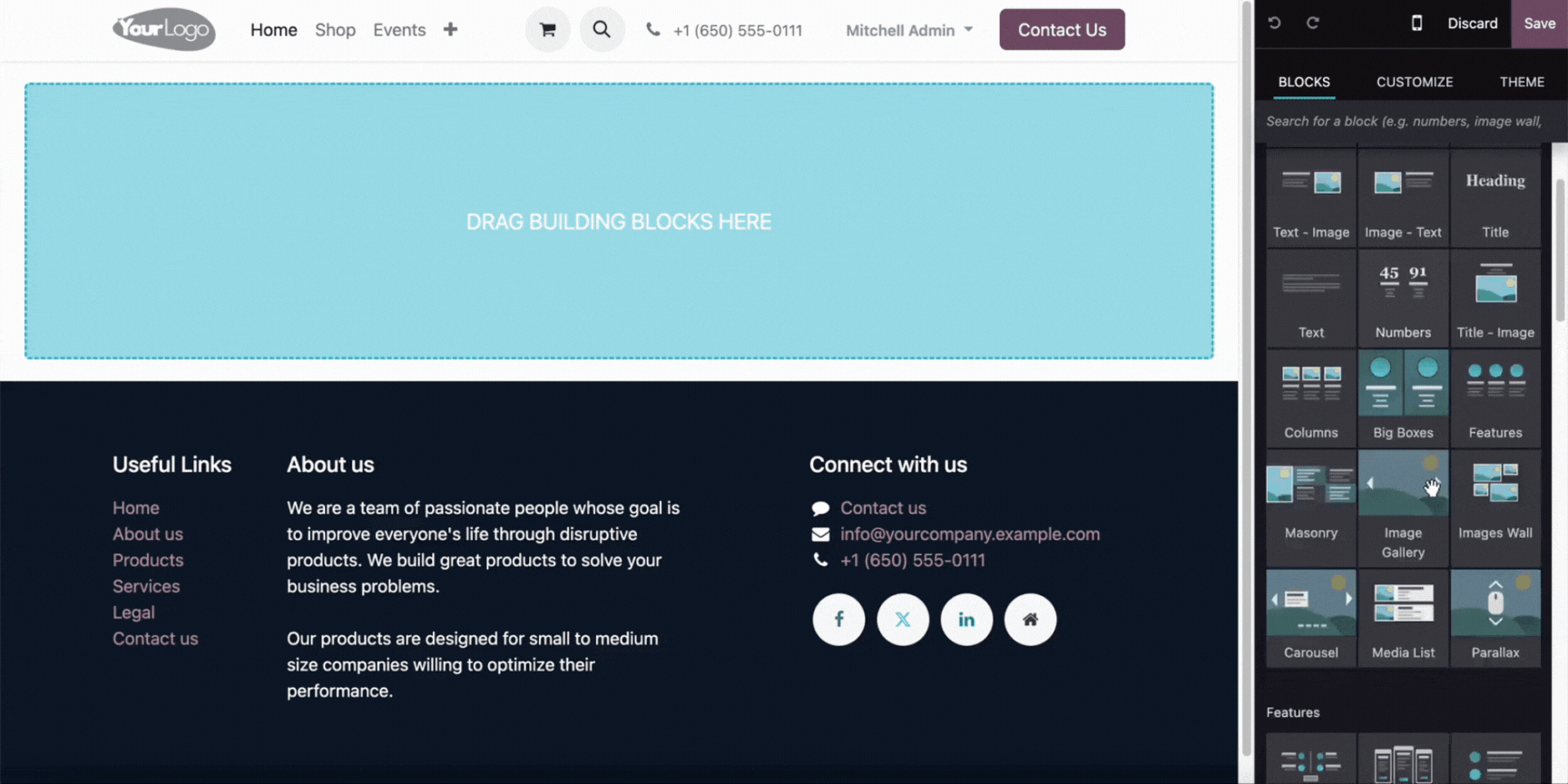
A scroll through the building blocks in Odoo’s Website app
WordPress + Divi: Powerful but complex
- Allows for deeper customization of page structures and key website elements, more capable to fulfil exactly what you want design-wise
- Overall reliance on multiple plugins (e.g. for headers, footers, mega menus) can lead to slower performance and potential compatibility issues, complicating maintenance and on-the-fly design updates
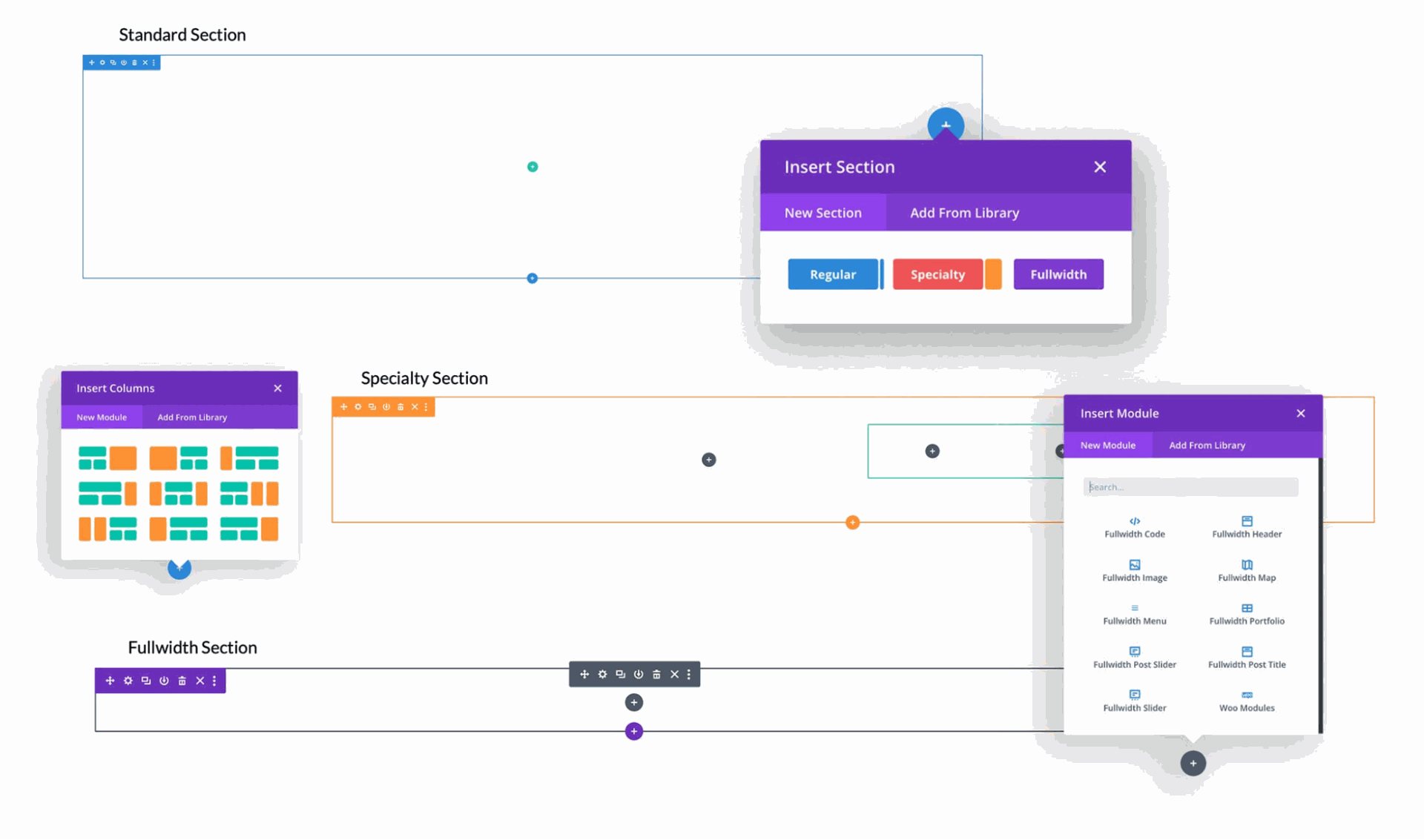
All components of building a page on Divi Builder – from hierarchical sections & columns, to specific block modules that are customizable
Bottom line: Odoo wins for everyday usability
Odoo offers an all-in-one solution that is simpler and potentially more sustainable for everyday use. WordPress, with its extensive plugins, provides depth but requires technical knowledge to keep up with maintenance. Our take? Sometimes, keeping it simple is the way to go. Odoo wins this round on the basis of efficiency and ease of use without the need for constant tweaks or addons.
3. SEO features
Both WordPress (using the Yoast SEO plugin) and Odoo 17 provide essential SEO tools like meta tags, descriptions, and keyword optimization to boost organic search visibility. As their approaches and additional features vary, here’s our comparison:
Odoo 17: Multilingual & well-rounded
- Very strong capacity for multilingual websites; allows to not only optimise but also facilitates the creation of pages based on language for a straightforward 2-in-1 workflow; seamless on-page translation is a game-changer
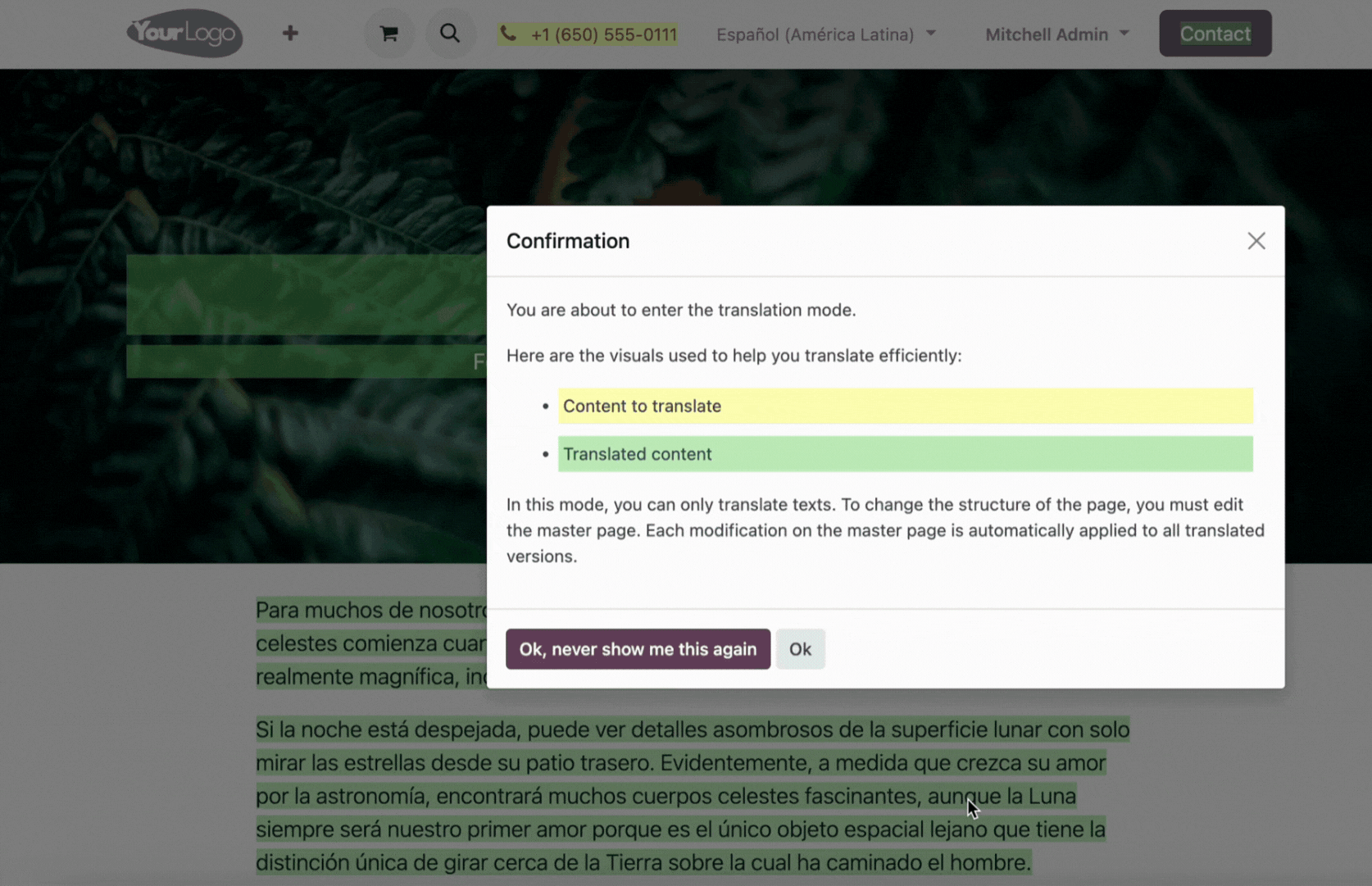
On-page translation on an Odoo 17 website
- Not as analytically driven as WordPress + Yoast, especially when it comes to on-page analyses and improvements; functional but basic.
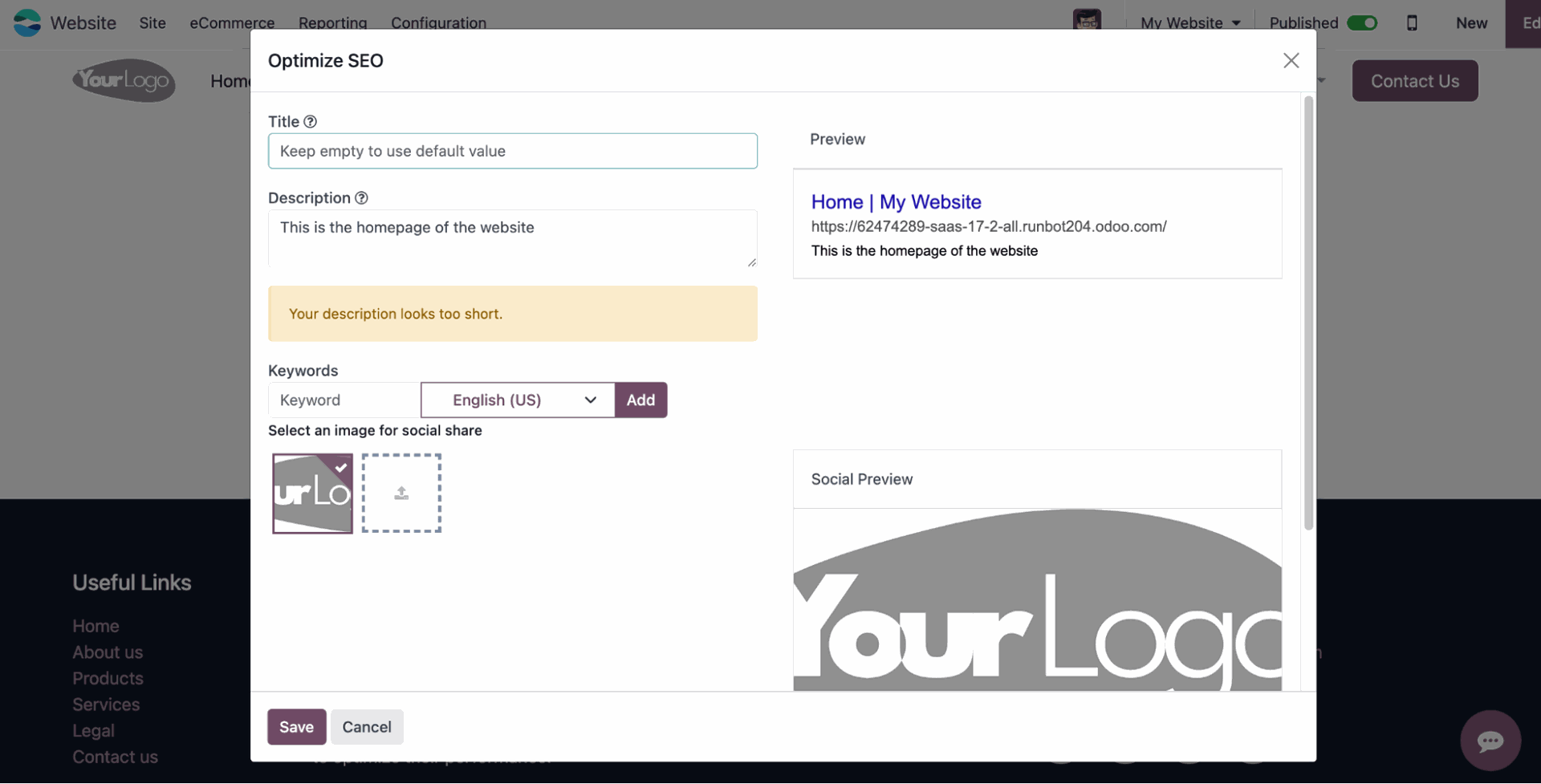
Optimising SEO on a landing page in Odoo 17
WordPress + Yoast SEO: Detailed & analytical
Yoast SEO’s Premium version offers very detailed page analysis and actionable on-page optimization suggestions for internal linking and readability; red-yellow-green colour system for ranking quality of SEO & text is great
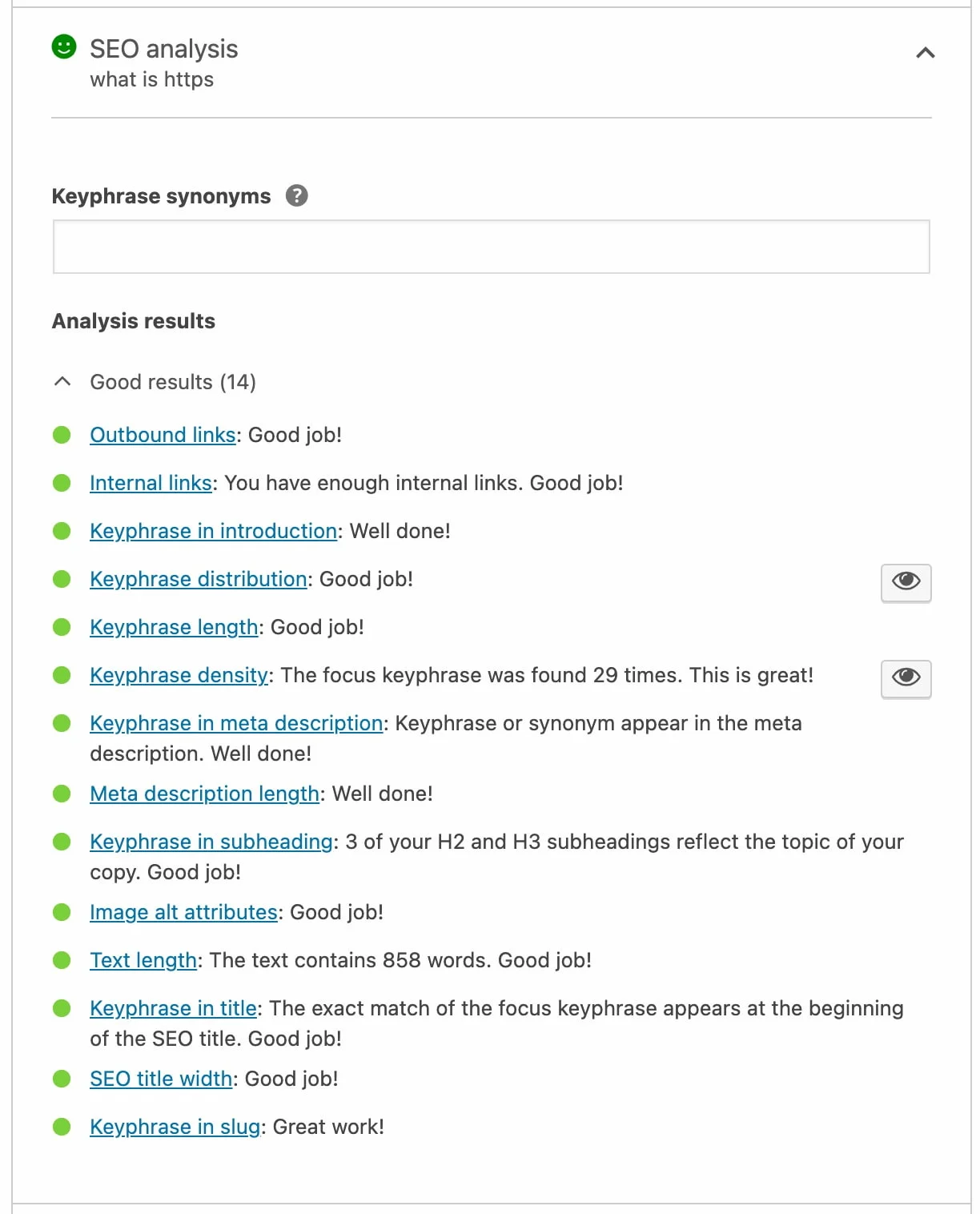
Sample of Yoast SEO’s detailed on-page analysis
- Added value comes from paid Yoast Premium plugin, the basic Yoast plugin features are the same as Odoo’s native SEO features; many add-ons for one purpose
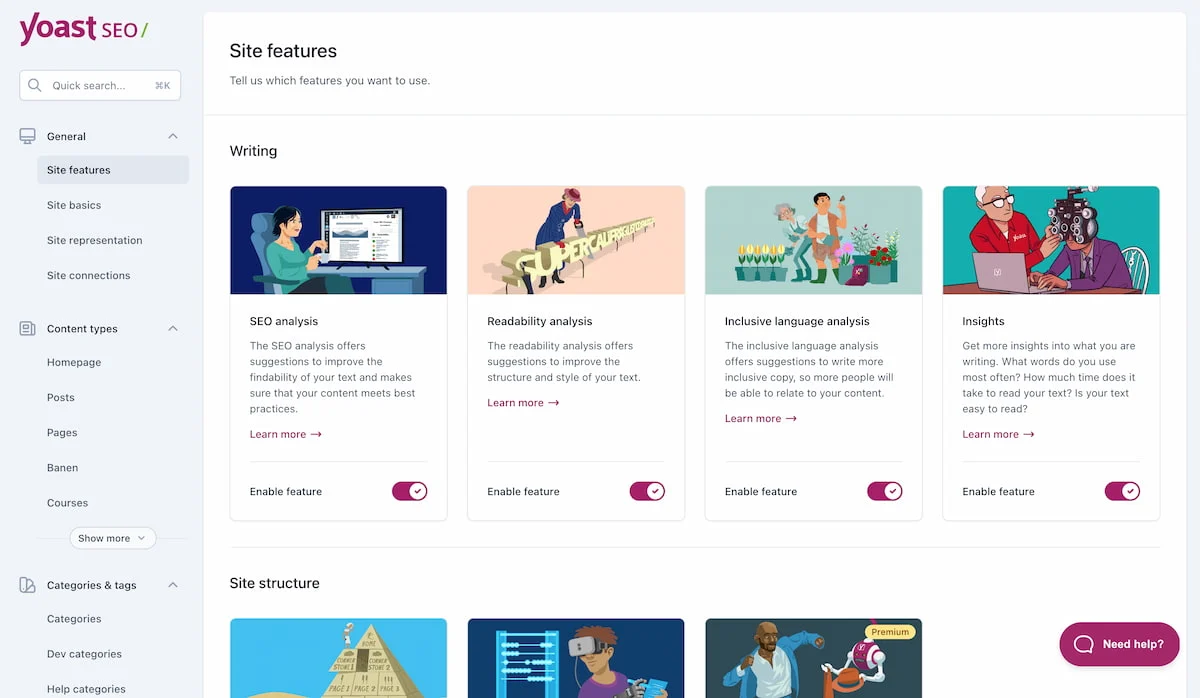
Yoast SEO’s dashboard settings
Bottom line: Odoo for multilingual SEO & Yoast SEO for on-page analysis
Our verdict? This one is a tie between Odoo 17 & WordPress. Yoast SEO offers more specialised tools, while Odoo offers a simpler yet broader range of functionalities. In Odoo, all SEO features are standard with no need for added plugins or paid subscriptions – it’s simple, functional, and great for its multilingual and translation capabilities. Yoast SEO may require more configuration and addons but is more flexible for structuring content and in-depth data setups. It’s really all down to your specific wants and needs.
4. Customization capabilities
Odoo and WordPress both offer strong customization, but their main focuses differ. Odoo is at its core an ERP platform – that also allows for web customization as an extra feature. WordPress, on the other hand, is known for its flexibility and wide range of customization options for any website.
Odoo 17: Versatile but ERP-centric
- Open-source and flexible by default, Odoo allows significant tailoring within its ERP framework. Perfect if you’re already integrated into the Odoo ecosystem and want to integrate your website with existing CRM, Sales, eCommerce apps, etc.
- The website builder is just one part of Odoo’s broader ERP functionality, not its core focus.
WordPress: Made to be customised
- Known to be very strong for website customization, WordPress offers a wide range of themes and plugins that cater to virtually any need
- Plugin reliance can be a double-edged sword — offering unparalleled customization but at the cost of potential performance glitches and maintenance headaches
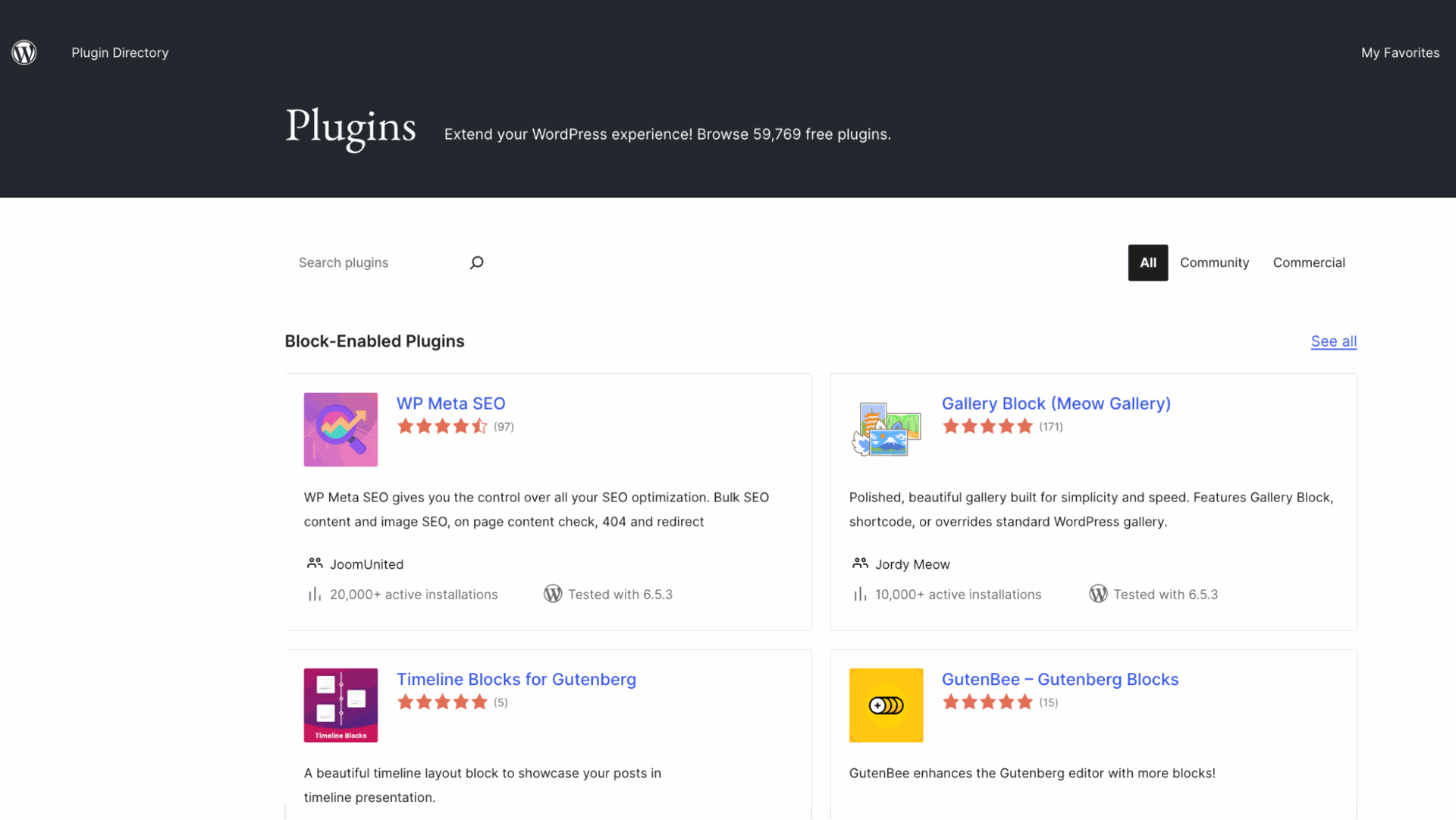
WordPress Plugin Directory – nearly 60K free plugins and many more across paid subscriptions and repositories
Bottom line: WordPress for customisation flexibility
It is unquestionable, WordPress is the winner for this round. being used by over 40% of websites on the relevant web – that represents more than 60% of the market share for content marketing systems in 2023. Odoo has a great website builder – but it’s first and foremost an ERP system.
5. Final considerations
After this tight comparison, it’s clear that while WordPress is more powerful, Odoo is far more intuitive. Here’s what we found most important and what influenced our decision:
Odoo 17: Simple but suitable for us
Odoo may seem more simple, but its integrated approach sells it for us. It connects with essential Odoo apps that we already use like Sales, CRM, Marketing apps, etc. Not only is it ideal for non-technical users, but if you’re already using Odoo for other business processes all the customization and coding you may need are linked to just one database
WordPress: Powerful, but overkill for our purpose
WordPress is like the Ferrari of website management. It’s packed with features — so many that we haven’t even scratched the surface. For the everyday user, it requires a stack of plugins. Without proper guidance, these plugins become more cumbersome than helpful. Our team has learned to work around these complexities rather than benefit from them directly.
Bottom line: Odoo is our winner
For teams already using Odoo (like us), sticking with the Website module is a no-brainer. It offers interconnected features with minimal need for external addons or extensive coding, making it ideal for most companies using Odoo as their ERP who want to start or revamp a website.
Want a fully integrated Odoo system? Our team can help!
Looking to connect your Odoo eCommerce operations to your Website, Sales and Accounting, or maybe just a seamless business management solution? Our team of experts has the knowledge to support you in your Odoo ERP project.
Contact us now and let’s discuss how to make the most of Odoo 17 to successfully meet your business goals!